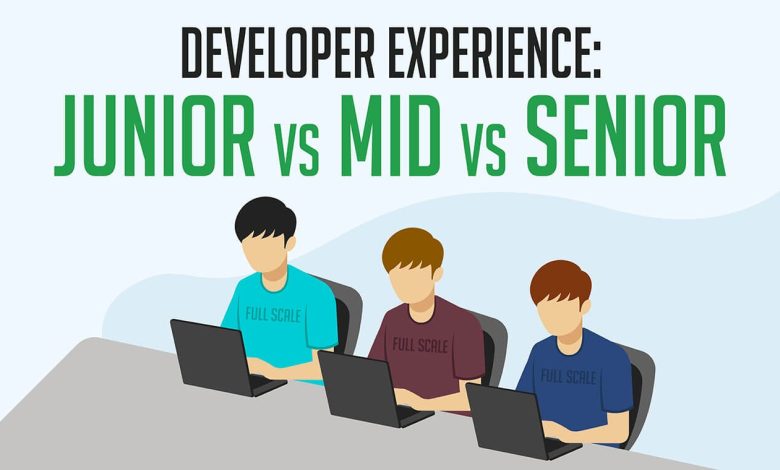Junior vs Senior Developer: Key Differences

In the tech industry, the terms Junior Developer and Senior Developer are commonly used, but the distinction is not just about years of experience. Understanding the differences helps both developers and managers set expectations, career goals, and responsibilities.
In this article, we’ll explore the key differences between junior and senior developers, including skills, responsibilities, mindset, and growth pathways.
1. Experience and Skill Level
- Senior Developer:
- Usually 5+ years of experience
- Deep understanding of multiple technologies and architectures
- Can design, implement, and maintain complex systems independently
💡 Tip: Experience is important, but problem-solving ability and understanding of software design are what truly differentiate senior developers.
2. Problem-Solving and Decision-Making
Senior Developer:
- Balances trade-offs between performance, scalability, and maintainability
- Makes architectural and design decisions
- Anticipates potential issues before they occur
3. Code Quality and Best Practices
Junior Developer:
- May make mistakes with code structure, testing, or security
- Learning to write clean, maintainable code
Senior Developer:
- Implements testing strategies, CI/CD pipelines, and documentation
- Mentors juniors on best practices, code reviews, and refactoring
- Ensures high-quality code standards
4. Project and Task Management
Junior Developer:
- Focuses on completing assigned tasks efficiently
- Needs detailed instructions and supervision
- Works on smaller tasks or modules
Senior Developer:
- Coordinates with teams and ensures deadlines are met
- Breaks down complex projects into manageable tasks
- Leads projects or modules end-to-end
5. Communication and Leadership
Junior Developer:
- Focuses on executing tasks correctly
- Communicates progress and asks questions
Senior Developer:
- Provides feedback constructively and fosters team growth
- Leads code reviews, design discussions, and mentoring sessions
- Communicates technical ideas to both technical and non-technical stakeholders
6. Understanding of the Business Context
Junior Developer:
- May not fully understand the impact of their code on users, product, or business goals
- Focused primarily on technical implementation
Senior Developer:
- Understands how software decisions affect business outcomes
- Balances user experience, performance, and cost-effectiveness
- Suggests improvements that align with product strategy
7. Autonomy and Initiative
Junior Developer:
- Less likely to propose architectural changes or optimizations
- Relies on instructions and guidance from senior team members
Senior Developer:
- Works independently and takes initiative
- Identifies inefficiencies and proposes solutions proactively
- Can lead new feature development with minimal supervision
8. Mentorship and Knowledge Sharing
Junior Developer:
- May participate in knowledge-sharing sessions
- Learns from seniors and peers
Senior Developer:
- Actively mentors junior developers
- Shares expertise through workshops, code reviews, and documentation
- Promotes a culture of learning within the team
9. Career Growth Path
Junior Developer:
- Should aim to master problem-solving, code quality, and communication
- Focus on learning fundamentals, gaining experience, and building a portfolio
Senior Developer:
- May progress to Team Lead, Tech Lead, or Architect roles
- Focus on strategic impact, leadership, and broad technical expertise
Conclusion
The difference between junior and senior developers is more than just experience—it encompasses technical skill, problem-solving ability, communication, leadership, and business understanding.
While juniors focus on learning and execution, seniors provide guidance, design systems, mentor teams, and influence project outcomes. Understanding these differences helps developers set career goals and enables teams to allocate responsibilities effectively, ensuring both personal growth and project success.

